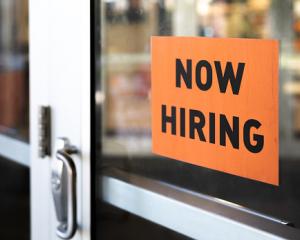Westpac has joined the interest rate debate, saying the differing views on whether borrowers should opt for fixed rate or floating rate mortgages showed the trading banks were at odds with the Reserve Bank about where inflation goes from here.
Over the past few years, most homeowners have shifted from fixed to floating rate mortgages, but some banks have suggested customers should have another look at fixing.
Westpac chief economist Dominick Stephens, in a research note, said confusion over interest rates may have arisen from the fact that the Reserve Bank's current thinking "does not lie anywhere along the usual simple continuum'' of views on interest rates.
Stephens said there were three schools of thought.
The first was that the economy would continue in its current subdued fashion, with only modest pressure on inflation and interest rates.
The second - and the one adopted by most of the big banks - was that economic growth would pick up, bringing with in it inflation, and putting upward pressure on interest rates.
The Reserve Bank adhered to the third school, which suggested growth would indeed pick up, but without the attendant inflationary pressures, meaning interest rates would remain low.
At the release of its monetary policy statement on March 8, the Reserve Bank acknowledged the economy was getting better, but issued a "dovish'' monetary policy statement and signalled lower interest rates for longer.
Accordingly, the bank left its official cash rate (OCR) at 2.50 per cent, where it has sat for the past 12 months.
Most New Zealand-based bank economists, including Westpac's, are cautious on the global economy but expect stronger New Zealand gross domestic product growth over the next couple of years as the Christchurch rebuild ramps up.
The bank economists' view says stronger GDP growth will provoke inflation pressure in the normal way, and that the Reserve Bank will respond with official cash rate hikes.
Economists at all four main banks project that by March 2014, New Zealand will have higher GDP growth and higher inflation than it has today.
All are forecasting at least 150 basis points of official cash rate hikes by that time and all expect a persistently high exchange rate.
The Reserve Bank broadly agrees with the local economists that GDP will accelerate, but believes economies of scale make the Christchurch rebuild different from previous construction booms, so more work can get done with less cost pressure, Stephens said.
The Reserve Bank has also emphasised the inflation-dampening effect that a persistently high exchange rate will have.
"Essentially, the Reserve Bank is forecasting growth without inflation pressure, and therefore sees little need for OCR hikes,'' Stephens said.
Westpac's view is that growth will accelerate along the lines that the Reserve Bank suggests and that inflation will remain low this year.
But it expects to see signs of cost pressures emerging from the Christchurch rebuild in 2013.
"That's why we expect more OCR hikes next year than either the RBNZ's projections or current market pricing suggests,'' he said.
"Fixing now guarantees a low rate of interest through the difficult years ahead,'' Stephens said.
"The risk of waiting is that fixed rates go up, and a less favourable rate of interest is locked in for the 2013 to 2015 period.''












